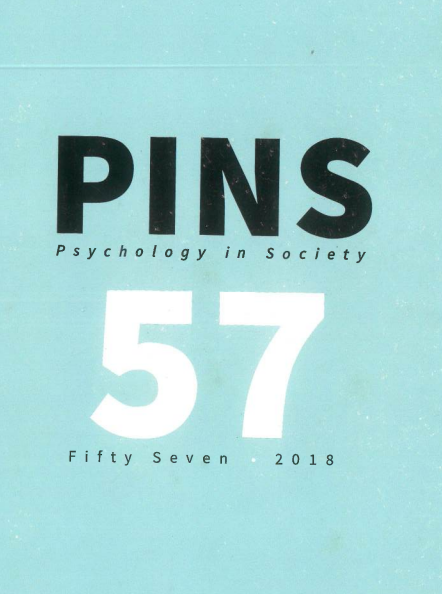Master signifiers, ideological fantasy, unknowability, and enjoyment in the colonial field
DOI:
https://doi.org/10.57157/pins2018Vol57iss2a6042Keywords:
colonial discourse, fantasy, psychoanalysis, racism, othernessAbstract
Chabani Manganyi’s long-neglected (2018) essay “Making strange” demonstrates how many of the most influential philosophical and psychological discourses of Western modernity are fundamentally extensions of colonial discourse, a fact evinced in a reoccurring discursive device: the production of otherness. This paper argues that the procedures through which otherness is produced are not only discursive but psychical also. They are discursive in the sense that discourses of racial knowing perpetuate – by their own constant failure to fully know – the need to try yet again to know the unknowable, that is, to produce unknowability. They are psychical in the sense of a fundamental fantasmatic assumption of a counter-identification, that is, via an already made assumption of fundamental difference. So, while the argument is sometimes made – as it is, in exemplary fashion in Manganyi’s work – that psychoanalysis cannot rid itself of the conceptual shadow of colonial discourse, it can also be said that the critiques of colonial discourse are themselves are often tied to, if not implicitly contingent upon, extensions and adaptations of psychoanalytic ideas.
Downloads
Downloads
Published
How to Cite
Issue
Section
License
This journal is an open access journal, and the authors' and journal should be properly acknowledged, when works are cited.
Authors may use the publishers version for teaching purposes, in books, theses, dissertations, conferences and conference papers.
A copy of the authors’ publishers version may also be hosted on the following websites:
- Non-commercial personal homepage or blog.
- Institutional webpage.
- Authors Institutional Repository.
The following notice should accompany such a posting on the website: “This is an electronic version of an article published in PINS, Volume XXX, number XXX, pages XXX–XXX”, DOI. Authors should also supply a hyperlink to the original paper or indicate where the original paper (http://www.journals.ac.za/index.php/pins) may be found.
Authors publishers version, affiliated with the Stellenbosch University will be automatically deposited in the University’s’ Institutional Repository SUNScholar.
Articles as a whole, may not be re-published with another journal.
The copyright of the article(s) lies with the author(s).
The copyright of the journal lies with PINS-psychology in Society.
The following license applies:
Attribution CC BY-NC-ND 4.0 - https://creativecommons.org/licenses/by-nc-nd/4.0/

